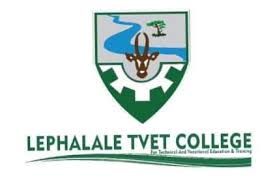Computer Applications Technology (Certificate in Computer Applications ) – A Detailed Guide
In today’s digital world, Computer Applications Technology (CAT) is an essential skill for anyone looking to enhance their proficiency in computing. Whether you’re a student looking to enter the workforce or someone seeking to upskill, obtaining a Certificate in Computer Applications can provide you with a solid foundation in using software applications, databases, and technology tools that are integral to modern business environments.
This comprehensive guide will delve into what the Certificate in Computer Applications involves, the skills you will gain, the career opportunities it opens, and how you can enroll in this program for the year 2027.
1. What is a Certificate in Computer Applications?
A Certificate in Computer Applications is an entry-level qualification that provides individuals with the knowledge and skills required to use various computer programs and applications effectively. This qualification typically covers:
- Basic computer literacy
- Office software applications (Microsoft Office Suite, Google Workspace)
- Internet usage and email communication
- Database management
- Spreadsheet analysis
- Presentation creation and editing
Unlike a diploma or degree in computer science, a certificate program in Computer Applications Technology is often more focused on practical, everyday tools that are used in both academic and professional settings.
Key Focus Areas of the Certificate Program:
- Word Processing: Learn how to use word processors like Microsoft Word or Google Docs to create professional documents.
- Spreadsheets: Gain proficiency in tools like Microsoft Excel or Google Sheets to manage data, perform calculations, and create charts.
- Databases: Learn how to organize, store, and retrieve data using database management systems such as Microsoft Access.
- Presentations: Become adept at designing and delivering presentations using tools like Microsoft PowerPoint or Google Slides.
- Email and Internet Navigation: Understand the fundamentals of using email, the web, and cloud-based tools for effective communication and collaboration.
2. Why Pursue a Certificate in Computer Applications?
There are numerous benefits to earning a Certificate in Computer Applications, especially in 2027 when digital literacy is a vital skill across all industries. Here are some reasons why this certificate is worth pursuing:
A. High Demand for Computer Skills
As businesses and organizations increasingly rely on technology to operate efficiently, the demand for individuals who are proficient in computer applications continues to grow. This certification equips you with the practical skills needed in various professional environments, making you a competitive candidate in the job market.
B. Entry-Level Career Opportunities
For individuals who are just starting their careers or those looking to change careers, this certificate offers an excellent entry point into the job market. Graduates often find positions in administrative support, data entry, customer service, and IT support, where computer application skills are essential.
C. Foundation for Further Studies
While a certificate is an entry-level qualification, it provides a strong foundation for pursuing more advanced studies in computer science, information technology, or business management. If you choose to further your education, the skills gained through this certificate will make it easier to transition to more specialized programs.
D. Flexible Learning Options
Many institutions offer the certificate through online courses, making it an excellent option for individuals who may be working or have other commitments. You can learn at your own pace while gaining valuable skills that can be immediately applied in your personal or professional life.
3. Course Curriculum for a Certificate in Computer Applications
The curriculum for a Certificate in Computer Applications is designed to provide students with both theoretical knowledge and practical skills. Below is a breakdown of typical modules or subjects you will encounter:
A. Introduction to Computers
- Basics of computer hardware and software
- Types of computers and their uses
- Operating systems (Windows, macOS, Linux)
B. Word Processing Applications
- Document creation and formatting
- Using styles and templates
- Inserting images, tables, and charts
- Mail merge and advanced document features
C. Spreadsheet Applications
- Creating and managing spreadsheets
- Working with functions and formulas
- Data visualization with charts and graphs
- Data analysis and filtering techniques
D. Database Management
- Introduction to databases and their uses
- Using software like Microsoft Access for creating databases
- Querying databases to retrieve and manipulate data
E. Presentation Software
- Creating slideshows and presentations
- Adding multimedia elements (videos, images, audio)
- Designing professional layouts for business presentations
F. Internet and Email Basics
- Using the internet for research, shopping, and communication
- Email protocols, security, and etiquette
- Cloud computing and online collaboration tools
G. Cybersecurity and Safe Internet Practices
- Protecting personal data online
- Recognizing phishing attacks and malware
- Best practices for secure internet browsing
4. Career Opportunities After Completing a Certificate in Computer Applications
A Certificate in Computer Applications opens doors to several career paths. While many people use it as a stepping stone, the certificate can also lead to entry-level positions in various sectors. Some of the most common career options include:
A. Administrative Assistant
As an administrative assistant, you will perform office support tasks, manage schedules, organize files, and use word processing, spreadsheets, and presentation software to help organizations function efficiently.
B. Data Entry Clerk
Data entry clerks input, update, and maintain information in databases and other digital systems. Proficiency in spreadsheet and database software is essential for this role.
C. Customer Service Representative
Customer service representatives often handle inquiries, resolve issues, and provide support using digital tools like email, chat platforms, and customer relationship management (CRM) software.
D. Office Manager
Office managers oversee office functions and may be responsible for hiring, training, and managing staff. They also organize meetings and manage office communications, requiring proficiency in office applications like word processors, spreadsheets, and email.
E. IT Support Technician
For those interested in IT, this certificate can serve as a foundation for providing technical support in organizations. IT support technicians troubleshoot software issues, install software, and offer assistance with operating systems and hardware.
F. Freelancer or Entrepreneur
Many graduates choose to become freelancers, offering services such as document formatting, spreadsheet management, or creating presentations for businesses and individuals. With digital tools, you can work remotely from anywhere in the world.
5. How to Apply for a Certificate in Computer Applications
A. Eligibility Requirements
The entry requirements for a Certificate in Computer Applications may vary depending on the institution offering the course. Generally, the following qualifications are required:
- High school diploma or equivalent
- Basic computer literacy (depending on the institution, this may not be required as the course itself covers the basics)
- Proficiency in English (some institutions may require proof of English language skills)
B. Application Process
The application process is typically simple and involves:
- Choosing an Accredited Institution: Ensure that the institution offering the certificate is accredited by relevant educational bodies.
- Submitting an Application: Apply through the institution’s website or physical campus. You may need to provide your academic records, identification documents, and proof of any previous qualifications.
- Paying Fees: Pay the course fee, which will vary depending on the institution. Some schools may offer flexible payment plans or financial aid options.
- Starting the Program: Once your application is accepted and payment is made, you will receive details on course start dates, materials, and access to online platforms if available.
C. Online vs. In-Person Learning
If you’re working or have other commitments, you may want to consider online study options. Many institutions offer the Certificate in Computer Applications entirely online, allowing you to learn from the comfort of your home and at your own pace.
6. Cost and Duration of the Program
The cost and duration of the program can vary based on the institution and whether the course is taken full-time or part-time.
- Duration: Typically, a Certificate in Computer Applications can be completed in 3 to 12 months, depending on the pace at which you study and the format (online or in-person).
- Cost: The cost of the course can range from R3,000 to R10,000 or more, depending on the institution and the specific modules included in the program.
Be sure to check with the institution offering the course for exact details.
The Certificate in Computer Applications is an excellent choice for individuals looking to gain a foundational understanding of computer software applications and improve their digital literacy. In 2027, with technology becoming ever more central to the workplace and daily life, these skills are not just beneficial—they are essential. Whether you’re looking to enhance your employability, upskill for your current role, or lay the groundwork for further studies, this certificate offers a clear pathway to success.
By pursuing this certification, you’ll gain valuable skills that are in high demand across multiple industries, enabling you to contribute effectively in any office environment, improve your personal productivity, and build a solid career foundation.
If you’re ready to take the next step, research accredited institutions offering this certification, and start your journey toward becoming proficient in computer applications today.




